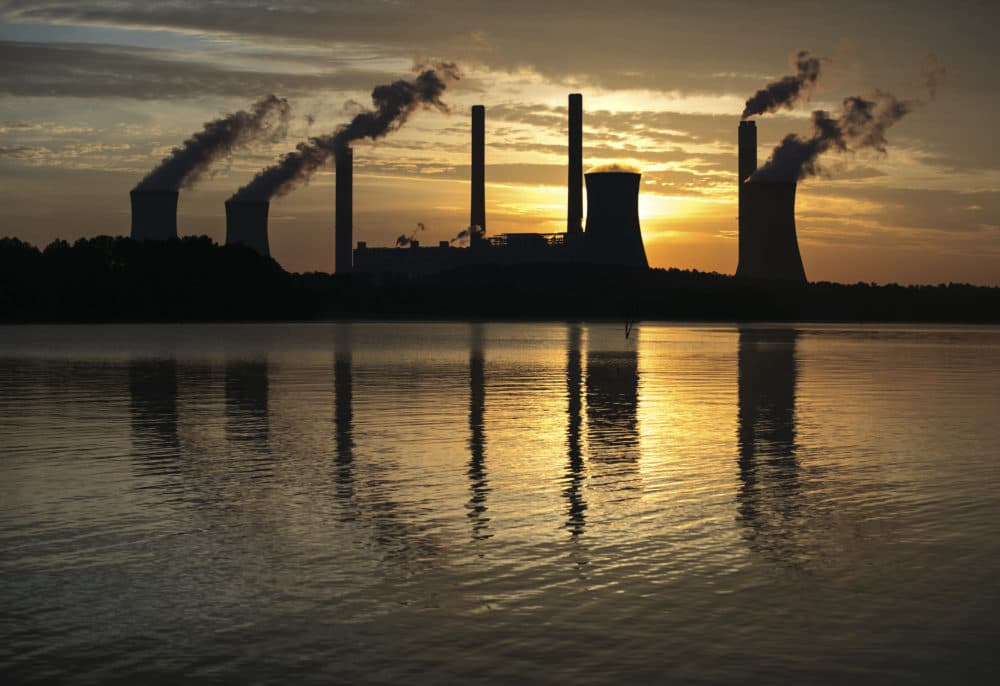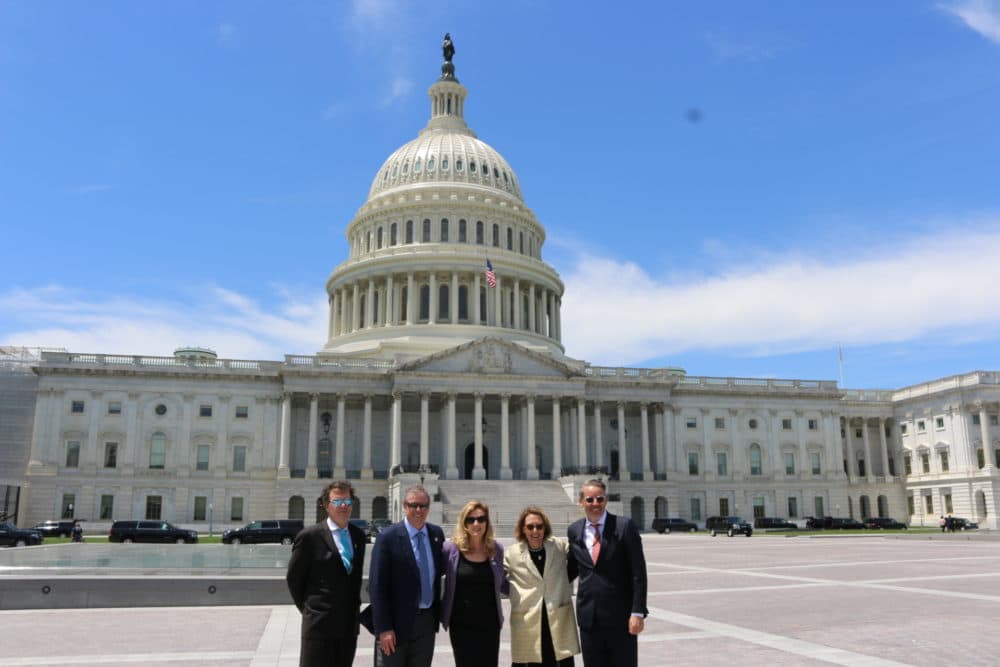Advertisement
Commentary
Even Oil Companies Want A Federal Price On Carbon

Executives from more than 75 companies traveled to Capitol Hill last month to urge Congress to take action on climate change by supporting a price on carbon. The effort, dubbed LEAD on Carbon Pricing by Ceres (the organization I work for), brought together companies that represented a combined market value of $2.5 trillion and employ over 1 million U.S. workers.
The corporate call for congressional action comes as the urgency grows to achieve the goals of the Paris Agreement, including a new aim to keep average global temperature rise to no more than 1.5-degrees Celsius, where the science says the results of warming would be less catastrophic. Here in the U.S., natural disasters — including devastating wildfires, droughts, storms and floods — are already racking up more than $300 billion a year in unnecessary costs. That’s in part why thousands of investors and companies are taking action, while the Trump administration takes steps to pull the U.S. out of the historic accord and roll back regulations intended to decrease greenhouse gas emissions.

Companies are also taking steps to reduce their own emissions. Big corporations, including Capital One, Etsy, Johnson & Johnson, Nike and Unilever are among the 170 companies that have committed to sourcing 100% of their electricity from renewable sources. Levi Strauss & Co, Mars, Seventh Generation, Salesforce and more than 200 other companies have set science-based targets to reduce their emissions.
These companies understand the economic risks of a changing climate for their operations, supply chains, employees and the communities they serve. But it’s clear that a surge in corporate commitments alone won’t be enough. Last year in the U.S., economy-wide greenhouse gas emissions increased.
We need leadership and action from all levels of government, including a price on carbon at the federal level. Economists agree that a carbon price has the potential to be the most cost-efficient and effective tool to reduce carbon emissions at the pace and scale required to tackle climate change. Companies support a price on carbon as a way to swiftly reduce emissions and protect themselves against the financial risks of climate change.
We need leadership and action from all levels of government, including a price on carbon at the federal level.
Even the oil industry — recognizing the scale of the climate challenge — supports pricing carbon. At a two-day summit this month convened by Pope Francis, many of the world’s largest publicly traded oil and gas companies joined some of the world’s largest investors in endorsing carbon pricing regimes as an “essential” part of the “urgent action” required to address the climate crisis.
With influential investors urging companies to reduce their emissions through Climate Action 100+ and other engagement initiatives, and companies committing to do so, we are in a prime position to see an "ambition loop" — where commitments to climate action encourage ambitious government policies.
Bold policies could provide clarity and certainty to spur companies to make even more significant investments in climate solutions. We could kick off a “virtuous cycle” of private and public sector leadership on climate action.
... Corporate voices in favor of policy action are ... helping to make the case that economic growth and emissions reductions can go hand in hand.
In the U.S., multiple bipartisan carbon-pricing bills were introduced in Congress last year — including the first by a Republican in nearly a decade. In New England, the Regional Greenhouse Gas Initiative (RGGI) has shown that carbon pricing can curb emissions and contribute to growing the economy. Since 2008, RGGI — the nation’s first multi-state carbon-pricing effort to reduce carbon pollution from power plants — has helped the region reduce emissions from power plants by more than 40%, while driving $2.8 billion in regional economic growth and creating nearly 30,000 jobs in many parts of the economy.
We know that a well-designed price on carbon could build on the successes of RGGI. We also know it is not a silver bullet. More policies are necessary to reduce emissions in the timeframe necessary to avoid the worst impacts of climate change. We will need policies to help decarbonize the transportation sector, build sustainable infrastructure, encourage agricultural carbon sequestration, and fund research and development of technologies such as energy storage.
But corporate voices in favor of policy action are growing louder and helping to make the case that economic growth and emissions reductions can go hand in hand. The unified message to lawmakers was firm: If you act boldly on climate change, you can count on our support.
As a piece in the Boston Globe put it, “Corporate America is knocking now. Maybe Congress will listen more closely.” We certainly hope so.
